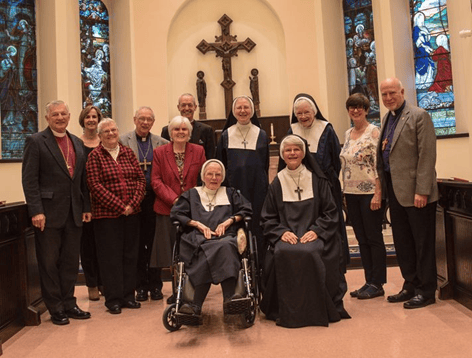TALLINN, Estonia – Pope Francis on Tuesday called Christians to “listen and seek,” warning of the dangers that come with keeping faith at bay and being slaves to consumerism and individualism, as he concluded a three-nation trip to the Baltics.
“God wants our love to be free,” Francis told faithful gathered for Sep. 25 Mass at Freedom Square, in Tallinn the capital city of Estonia. “When we say that we are Christians, when we embrace a way of life, we do so without pressure, without it being a kind of trade-off, in which we remain faithful if God keeps his promise.”
“Some people think they are free when they live without God or keep him at arm’s length. They do not realize that, in doing so, they pass through this life as orphans, without a home to return to,” he added.
Drawing from the first reading, recounting the experience of the Jewish people delivered from Egypt, Francis made the comparison with the difficult history of the Baltic States and Estonia. He recalled the “Singing Revolution,” where thousands sang throughout the Soviet occupation, a symbol for peaceful protests everywhere. He also mentioned the two million people who created a human chain in August of 1989 to show their independence.
“You know what it is to struggle for freedom; you can identify with that people,” the pope said.
“Like the people who came forth from Egypt, we have to listen and seek,” he continued. “These days, we may think that the strength of a people is measured by other means. Some people speak in a loud voice, full of self-assurance – with no doubts or hesitation. Others shout and hurl threats about using weapons, deploying troops and implementing strategies… That way they appear to be stronger. But this is not about ‘seeking’ the will of God, but about gaining power so as to prevail over others.”
Francis said that this attitude represents a rejection of God and his call for a “free and committed response” to others, away from concerns regarding the marketplace and power plays.
“You did not gain your freedom in order to end up as slaves of consumerism,” the pope said.
Estonia prides itself in being the hub of innovation in the Baltic States, the birthplace of Skype and e-residency, which allows foreigners to become residents of the country online even without having ever visiting it. Citizens have an almost unparalleled access to health and government services with just one click.
The Argentinian pontiff reminded the Estonian people of the dangers faced in the desert by the Jews, God’s chosen people, and the temptation to seek other gods and rely on their own strength.
“Being chosen does not mean being exclusive or sectarian,” he warned. “We are the small portion of yeast that must make the dough rise; we do not hide or withdraw, or consider ourselves better or purer.”
Like the eagle allows its young to fly out of the nest, God wishes for his people to go forth, the pope said, flying boldly with the confidence that they are not alone.
We have to leave our fears behind and go forth from our safe places, because today most Estonians do not identify themselves as believers,” Francis said.
Over 50 percent of the Estonian people declare themselves to be non-believers. The two largest religions in the country are Eastern Orthodox, which amounts to 16.15 percent of the populations, and Lutherans who represent a little under 10 percent. Only 5,745 people identify as Catholics, according to the 2000 census.
Being small in numbers does not mean Catholics in the country can take it easy, Francis said, but it’s instead a call to “bear witness and holy people.”
“We may be tempted to think that holiness is only for a few,” he said. “Just as the water in the desert was not a personal but a common good, just as the manna could not be stored because it spoiled, so a lived holiness expands, overflows and makes fruitful all that it touches.”
The path to sainthood stretches toward those who “lie prostrate and live at the margins,” the pope concluded. “We can’t think somebody else will be the one to stop and help, nor that these are problems to be resolved by institutions.”
“It is up to us to fix our gaze on those brother and sister and to offer a helping hand, because they bear the image of God, they are our brothers and sisters, redeemed by Jesus Christ. This is what it is to be a Christian; this is holiness lived on a day-to-day basis,” he said.













